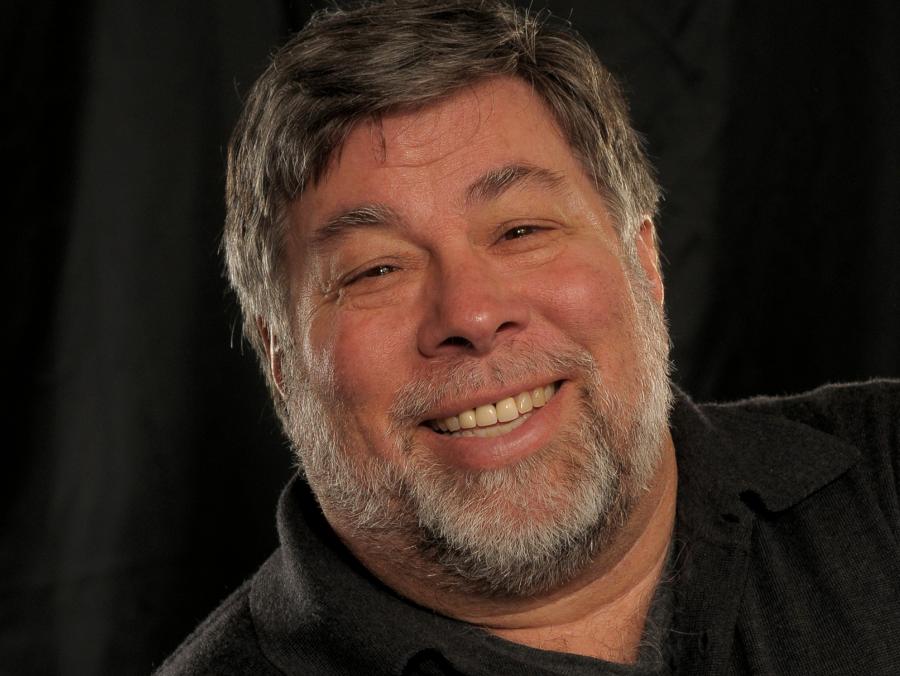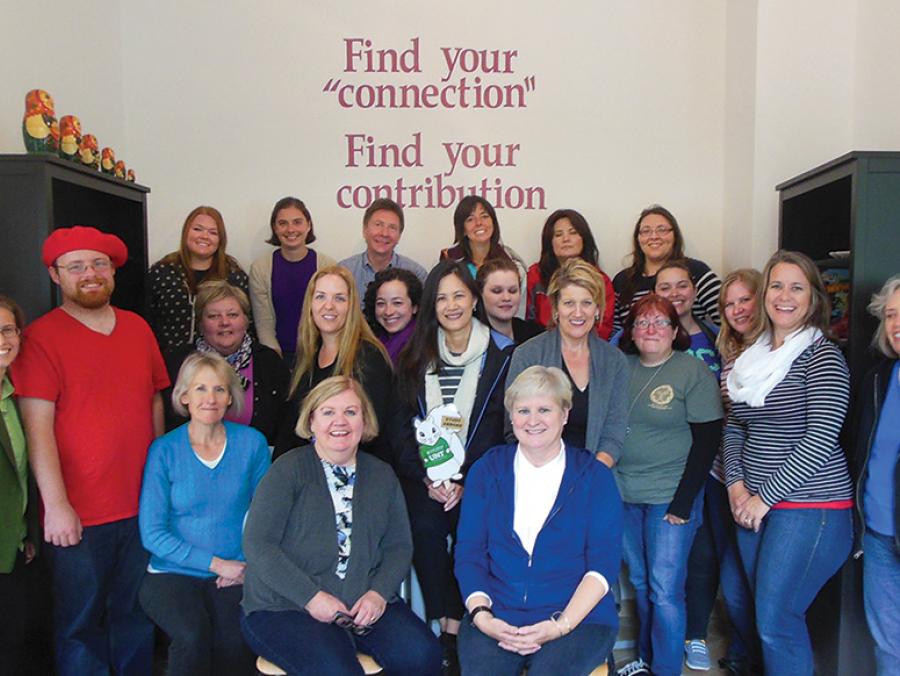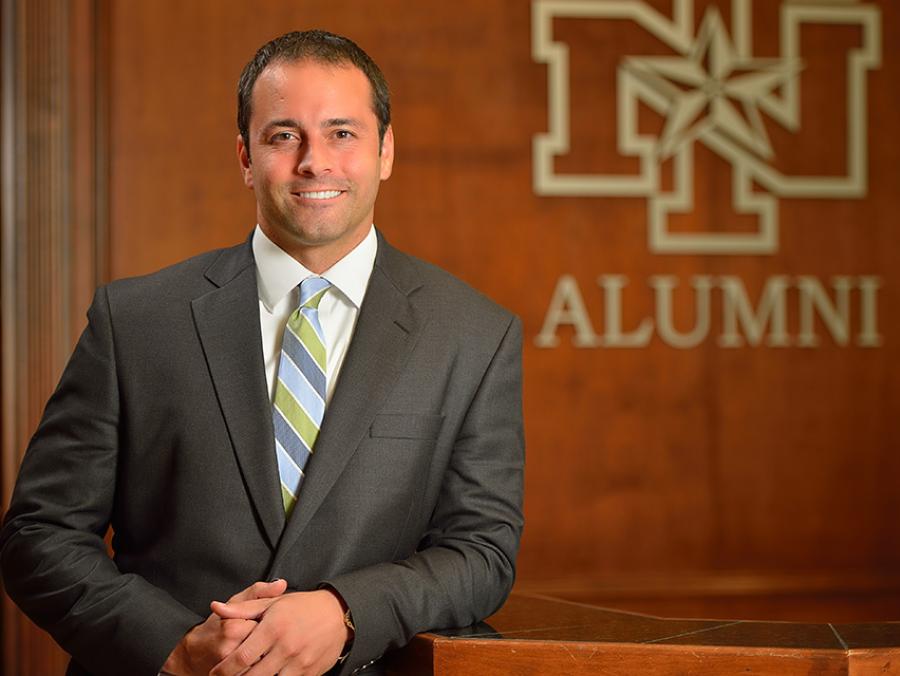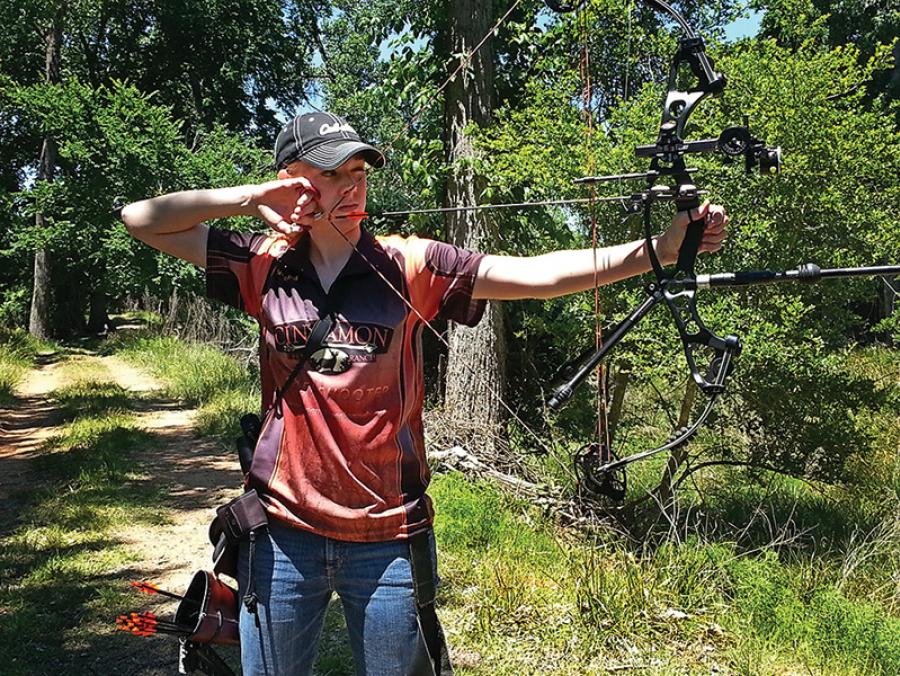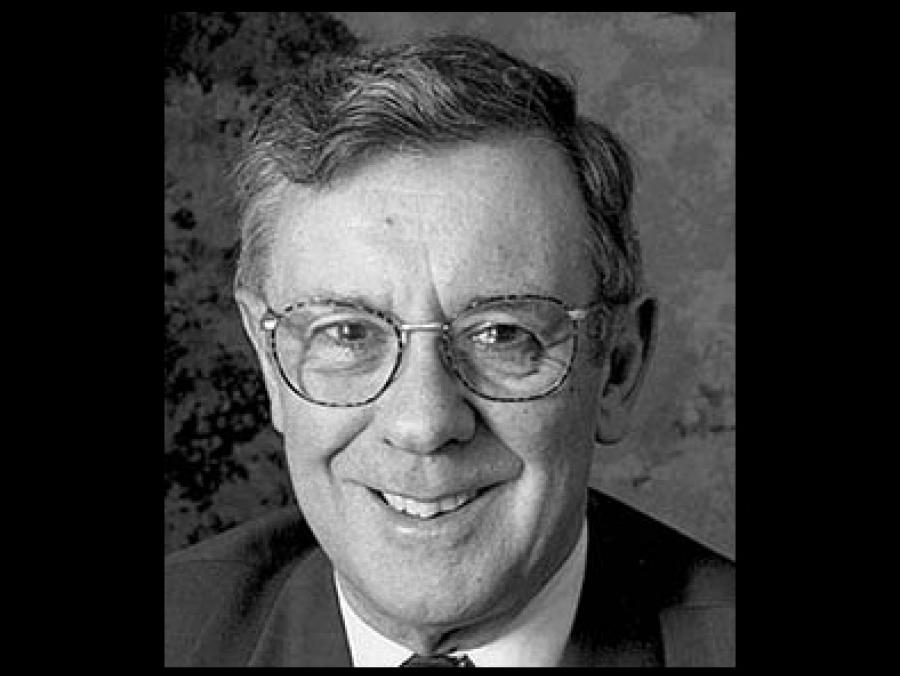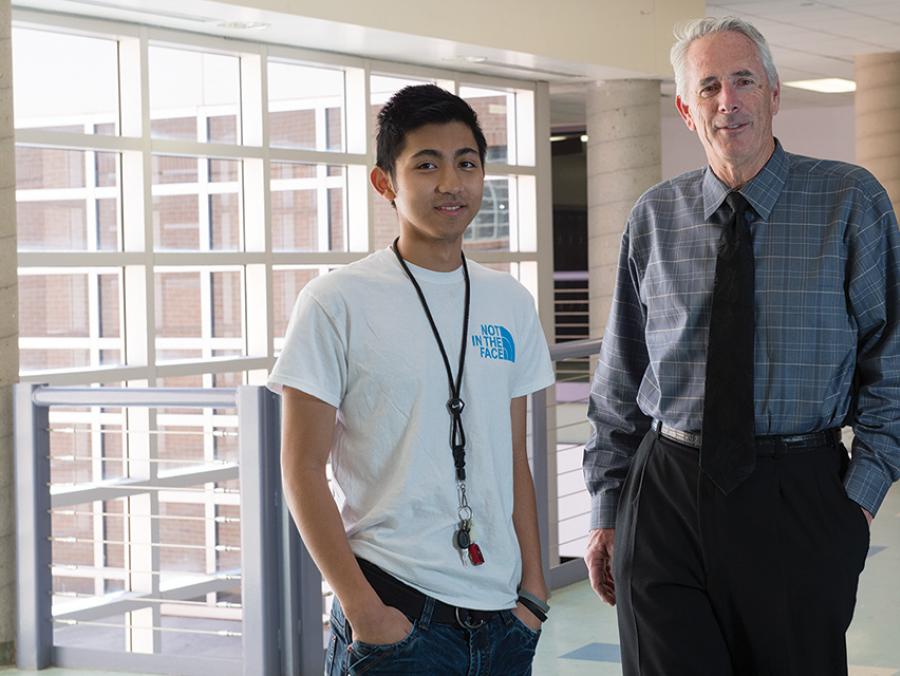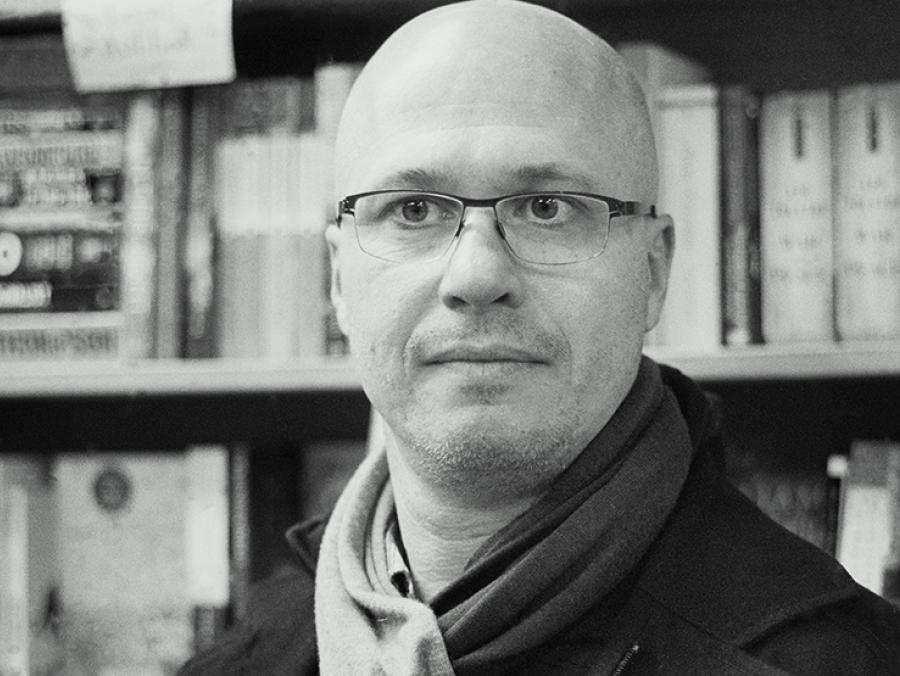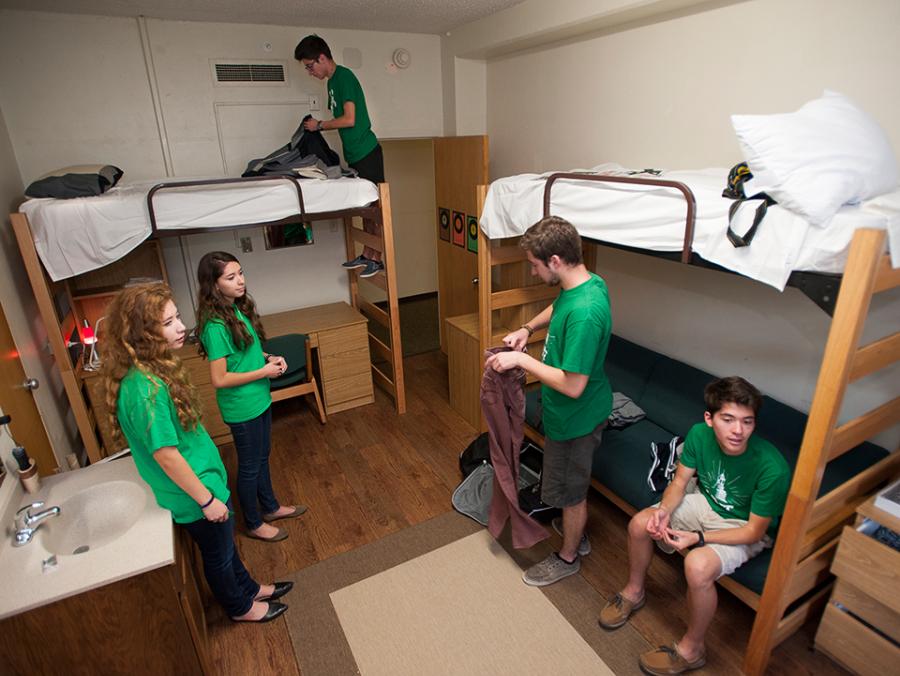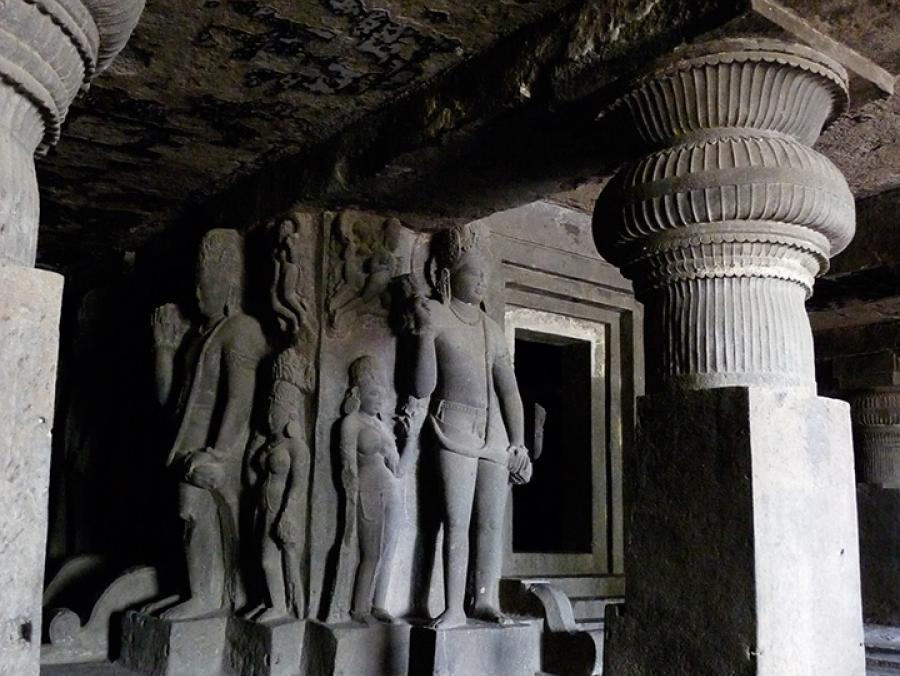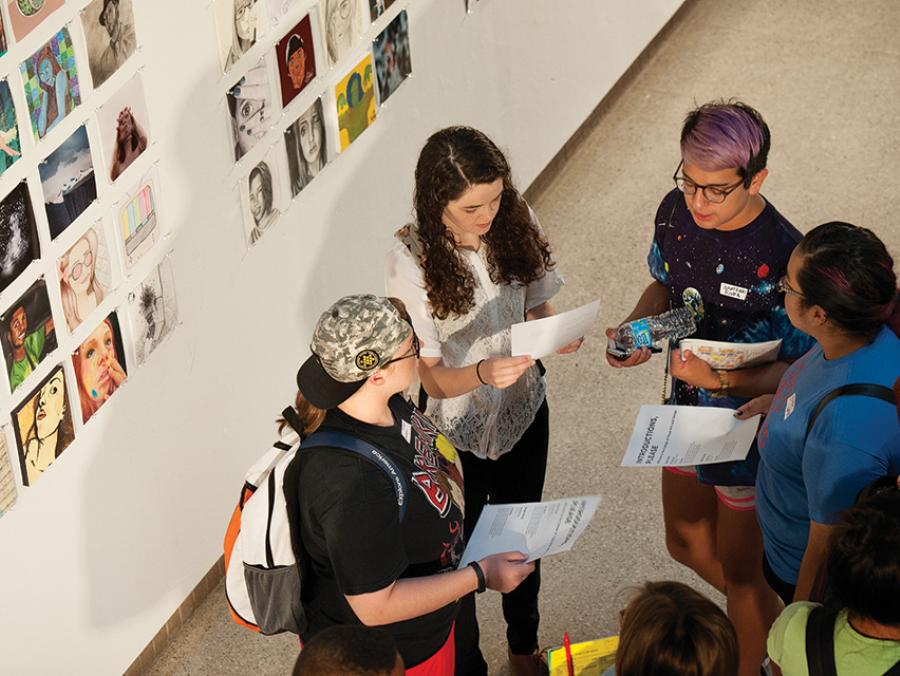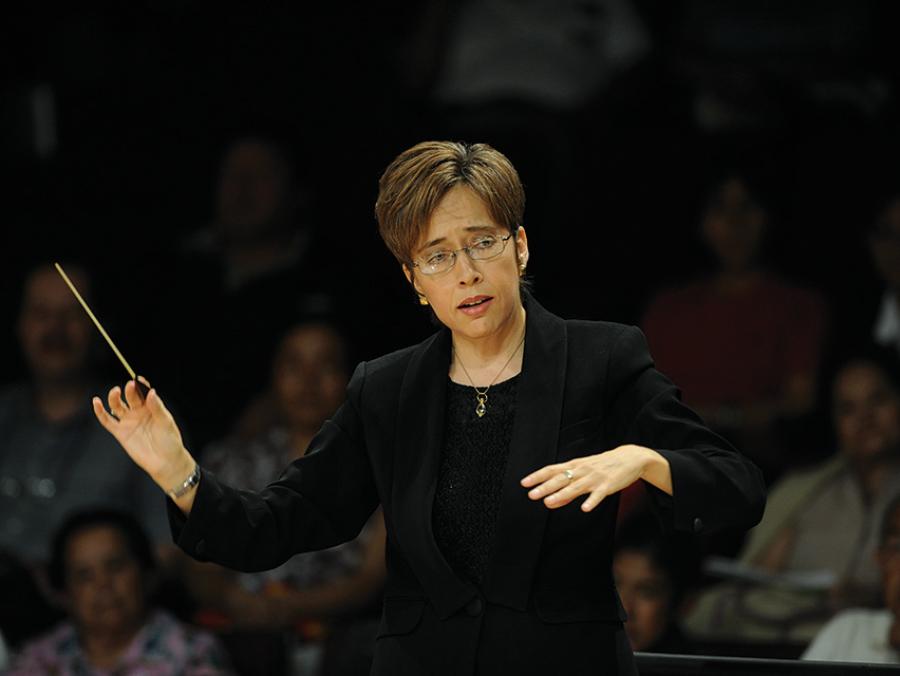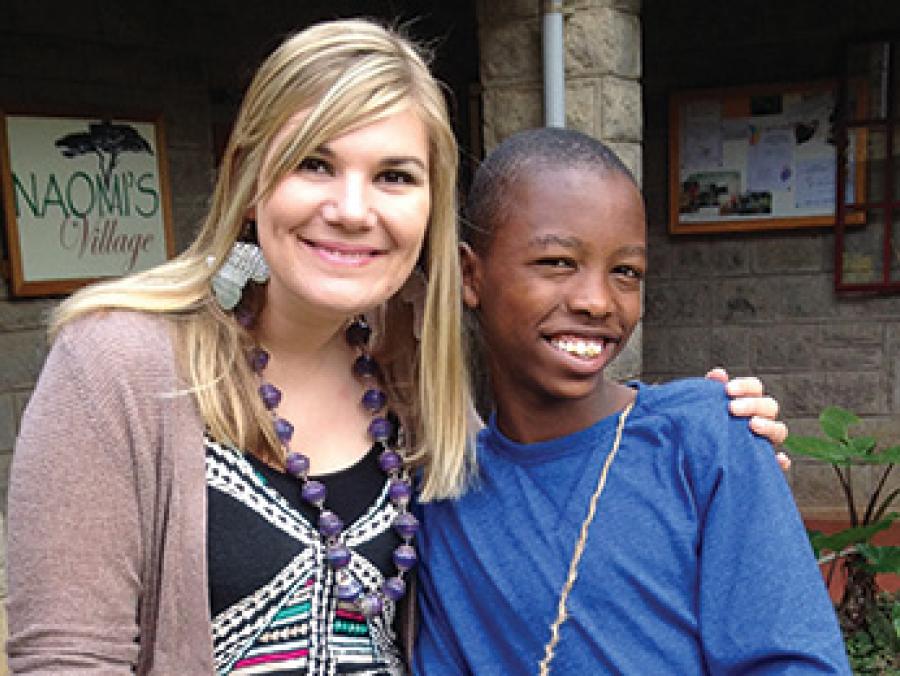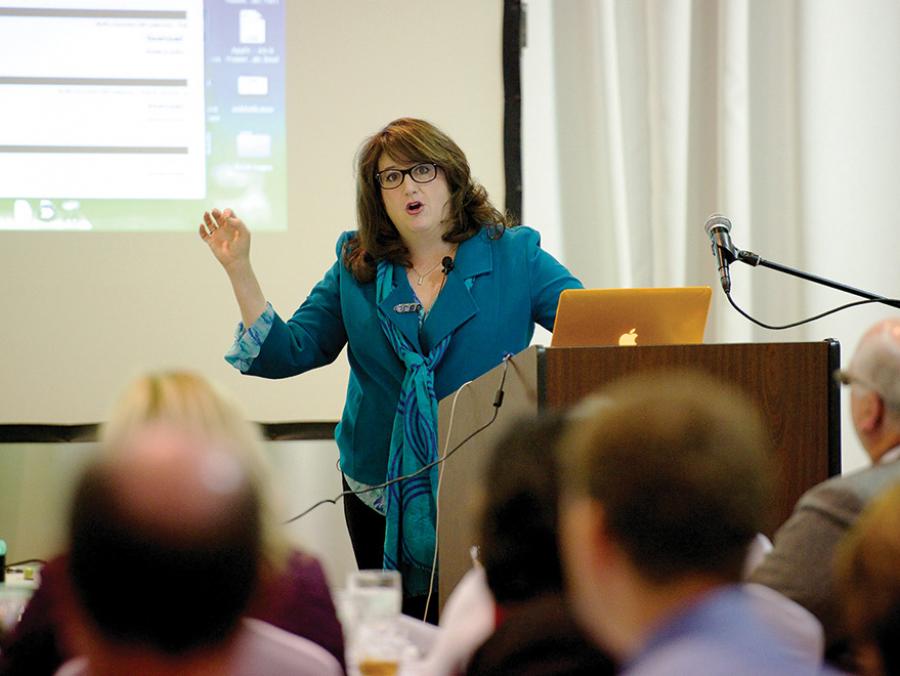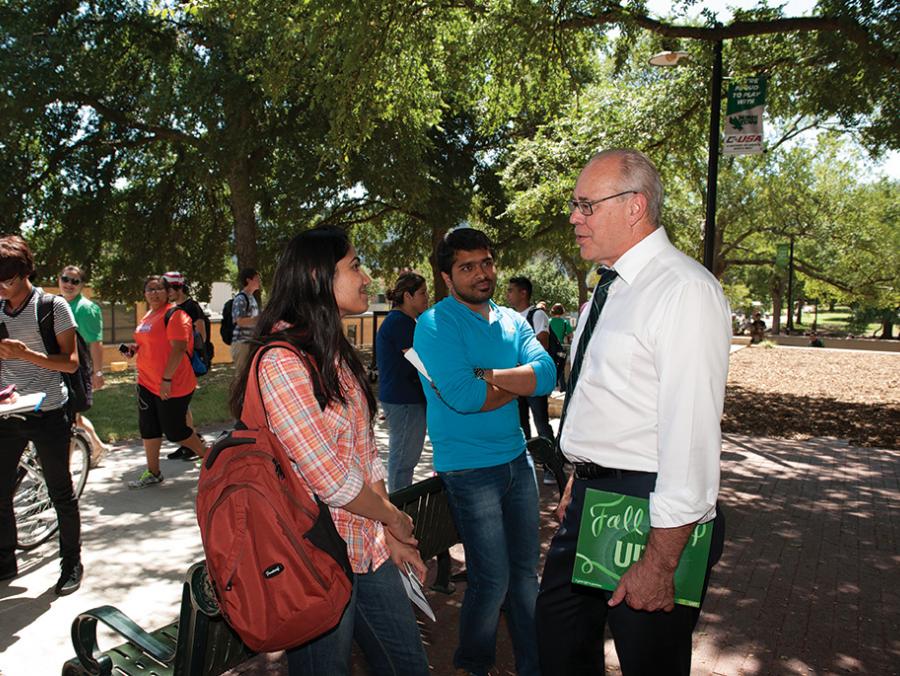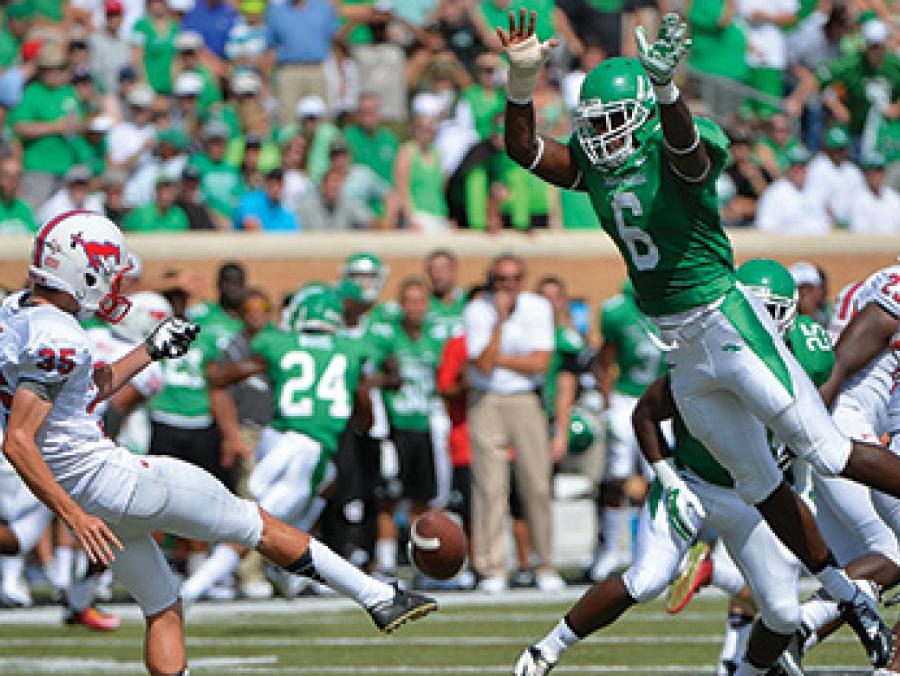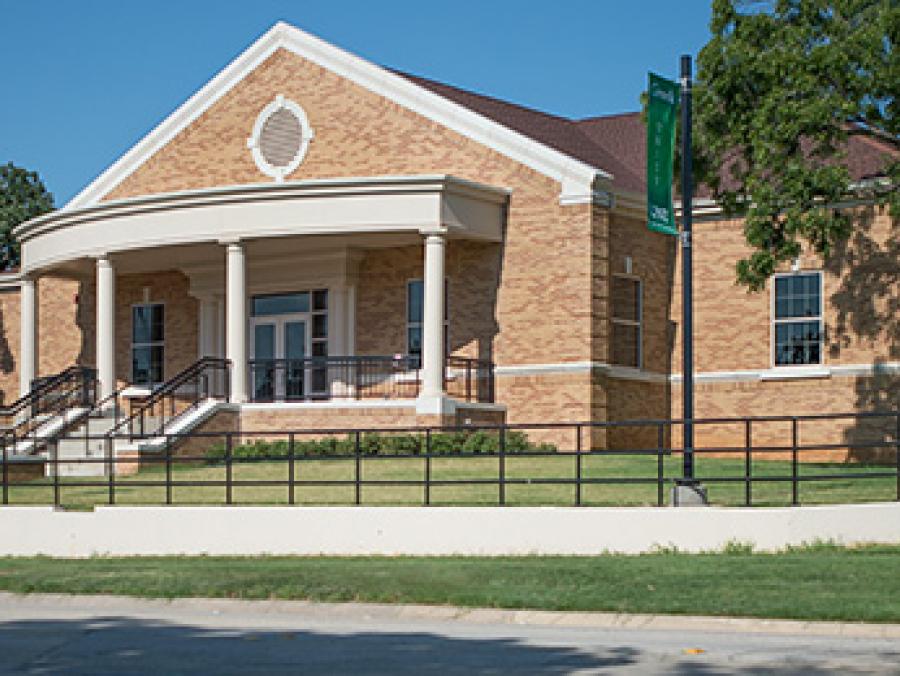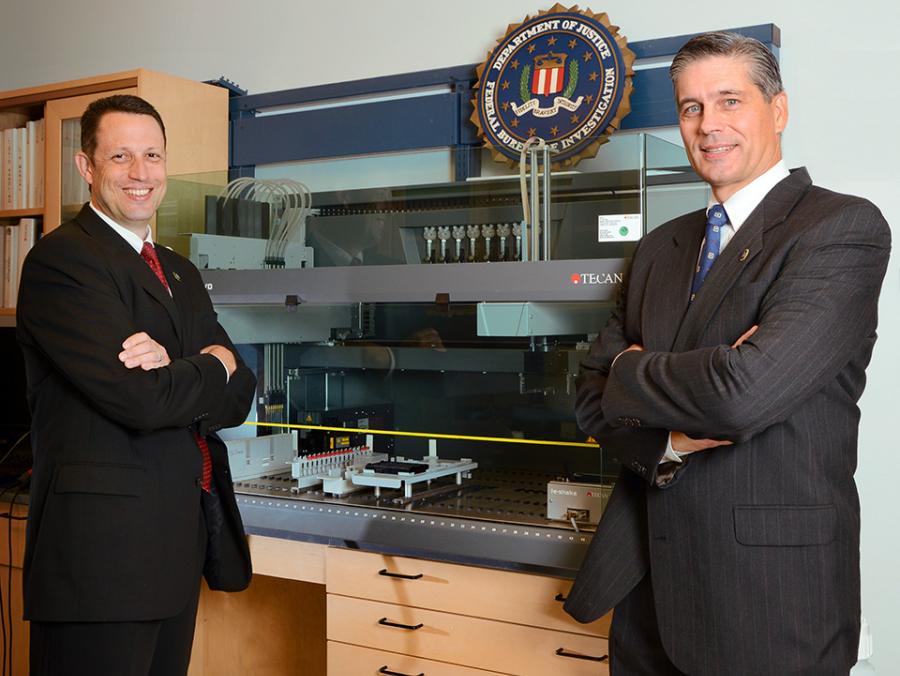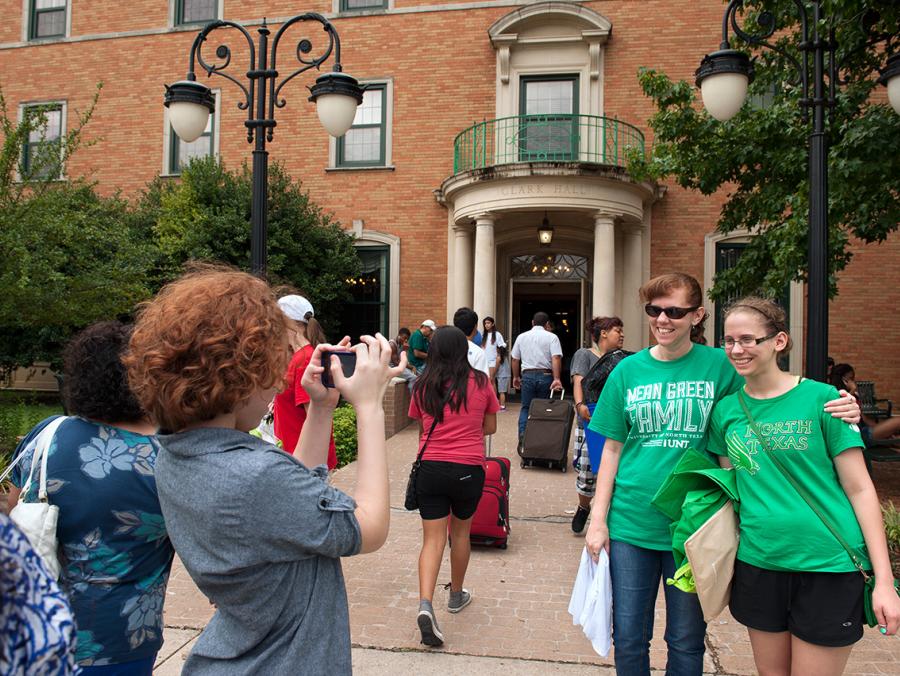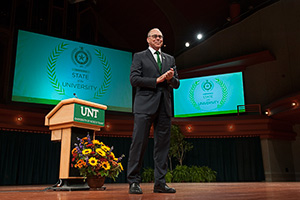 On stage at the Murchison Performing Arts Center — a space usually reserved for displays of UNT's musical excellence — President Neal Smatresk heralded a new kind of excellence for UNT, one borne from a culture of adaptability, transparency and collaboration, driven by a creative spirit, and defined by a "can-do" attitude to get things done.
On stage at the Murchison Performing Arts Center — a space usually reserved for displays of UNT's musical excellence — President Neal Smatresk heralded a new kind of excellence for UNT, one borne from a culture of adaptability, transparency and collaboration, driven by a creative spirit, and defined by a "can-do" attitude to get things done.
About 750 people attended the inaugural State of the University Sept. 17, where Smatresk gave a frank assessment of UNT, noting highlights and challenges of the past year while outlining UNT's priorities for the 2014-15 year. The audience included students, faculty, staff, leaders from UNT and the UNT System, community members and distinguished guests such as state Rep. Myra Crownover and UNT alumnus and Denton ISD superintendent Jamie Wilson (’01, ’03 M.S., ’11 Ph.D.).
Smatresk started his address by noting UNT's core strengths — its caring community and the family feel of its campus.
"This is an amazing place. You are the ones who made it that way," Smatresk told the audience.
Evolve the focus
During his address, Smatresk called on UNT community members to work together to achieve UNT's priorities. To ensure accountability, he defined metrics such as retention and graduation rates, program rankings, and fundraising and research funding ― all important data that UNT will use to measure its progress as an institution and its impact on students. Lastly, he outlined how UNT will evolve its focus throughout the next three years to show continued progress as it works toward national prominence.
"Our to-do list is ambitious and most of the priorities are multi-year tasks, but it's time to take UNT to the next level," says Smatresk, who spent his first months in office working through some of UNT's toughest challenges, including fiscal problems that resulted in a budget that needed shoring up. "We must focus on what's best for UNT, our students and our mission. If we deliver on our promise, we'll move our university forward while serving our communities, driving economic development and providing a strong, educated workforce for the region and state."
In 2014-15, UNT will continue to improve operations and efficiency, increase revenue and build stronger academic support systems. Smatresk says this also must be the year that UNT re-invents its campus community to break down silos and create a "can-do" culture for each other, students and the communities UNT serves. In 2015-16, the university will better align its academic programs with its mission and vision. And, in 2016-17, UNT will more clearly identify its unique attributes to shape a stronger, more authentic identity and further work toward achieving national prominence. Smatresk says the university will make progress in all areas beginning now.
Among the many VIP attendees at the event, Crownover says she is excited about Smatresk’s vision.
“I’ve seen many times how UNT changes and improves lives, one student at a time,” Crownover says. “It’s exciting to look forward to see how UNT will continue to make these kinds of impacts for the future.”
Alumna Gayle Strange (’67), former chair of the UNT System Board of Regents, also says she is inspired about the future of UNT.
“I share the president’s vision,” Strange says. “UNT has a rich history and I want to see it reach Tier One status and build on its many outstanding achievements, from academic success and athletic success to the university’s success in the arts and music.”
Share your dreams and expectations for UNT
As members of the UNT community -- alumni, friends, students, faculty and staff -- you have a role to play in helping UNT transform itself into a nationally prominent university. President Smatresk invites you to share your thoughts on three key questions:
- What is your greatest dream for UNT?
- What does the world want from UNT?
- What are UNT's unique attributes and market niche?
Share your ideas to provide a true picture of how UNT is perceived and how the university can be more valuable to the North Texas region and state. This will help UNT best plan its action steps toward progress.
There are three ways to share your thoughts:
- Visit Planning Implementation
- Tweet using the following hashtags: #UNTDreams, #UNTExpectations or #UNTIdentity
- Email president@unt.edu with UNT Dreams, UNT Expectations or UNT Identity in the subject line
To keep the university on track, Smatresk assigned three implementation teams that will be accountable for delivering on the university's goals:
- The Operations and Infrastructure Implementation Team will be led by Bob Brown, vice president for finance and administration.
- The Academic Implementation Team will be co-led by Warren Burggren, provost and vice president for academic affairs, and Elizabeth With, vice president for student affairs.
- The Research Implementation Team will be led by Tom McCoy, vice president for research and economic development.
Burggren says UNT already is working to improve the academic experience by emphasizing excellence in the classroom and world-class scholarship and research. Having an implementation team will provide more focus and accountability, he says.
"We've made promises to students that we'll give them a great education and help them graduate in a timely manner with skills and knowledge to help them go far in work and life," Burggren says. "All of us in academic affairs will focus on delivering on those promises."
New ideas and solutions
Rooted in the action plan is a call for the university to improve that started when Smatresk gathered 120 UNT and external community representatives in August to brainstorm new ideas and solutions in his first Planning Implementation Workshop at UNT. He gave the participating students, faculty, staff, alumni and community members one overarching message: "The way things were won't work anymore. UNT must change, adapt and grow in order to survive and evolve."
The workshop participants dug deep, frankly assessing UNT's challenges. Many called for UNT to strengthen its processes, break down silos, make a stronger connection between teaching and research, and better engage alumni. They also saw many opportunities to build on UNT's strengths as a creative, affordable, accessible, diverse university where there is "quality without elitism."
Music education and vocal performance junior Troy Elliott, who serves as Student Government Association president, says participating in the workshop gave him a sense of community.
"Even if not all of the goals come to fruition, we've created a greater sense of community on campus," he says. "And our leadership has a better idea of how their plans and decisions affect all of us."
Force of transformation
As part of this year's focus on operations and infrastructure, UNT is conducting a top-down and bottom-up review to overcome its fiscal hurdles and continue its financial transformation. The planning started with building a sound, conservative budget for Fiscal Year 2015, while balancing UNT's revenue and expenditures, continuing to fund its debts and liabilities, and starting to rebuild the university's savings. With a sound budget in place, UNT will focus on making new strategic investments and improving operations and infrastructure, while using its resources more effectively and creating a higher level of accountability.
"In improving our budget, operations and infrastructure, we're making sure that UNT has the resources it needs to provide students with a quality education and a quality learning environment," Brown says.
With agrees. She says student success depends not only on how good the academic environment is, but also on how strong the support system is for students.
"We're focused on creating a strong culture of success that starts the minute students step foot on our campus, continues through graduation and keeps them connected to UNT as alumni," With says.
Fall 2014 enrollment figures show that UNT is making progress in helping students succeed. Enrollment is strong, with a 16 percent increase in the College of Engineering and a 9 percent increase in the Frank W. and Sue Mayborn School of Journalism. And retention is up, with increases in the number of continuing students and students enrolling full time. UNT's Eagle Express Tuition Plan got a jumpstart in its first year, with 4,700 students -- including half of the freshman class -- opting into the plan and committing to graduate in four years.
McCoy attributes UNT's strong retention and enrollment partly to UNT's role as a growing research institution.
"Faculty at research institutions are much better teachers because they provide students with cutting-edge knowledge and experiences, and they share their creativity. It's a great benefit to students' educational experience," he says. "Having a strong research enterprise enables faculty to give students the critical skills they need to be successful in the job market."
UNT's mission and progress are based on value -- what the world expects from UNT and how well the university aligns our actions, operations and initiatives to those expectations, Smatresk says. The action plan is the bridge between expectations and the university's outcomes.
"We create value in many ways -- from solving problems to providing a strong, educated workforce to help industry and the economy thrive," Smatresk says. "But our most important and potent mission as a public university is to be a force of transformation. We don't just change the lives of our students. We change the lives of everyone around them."





